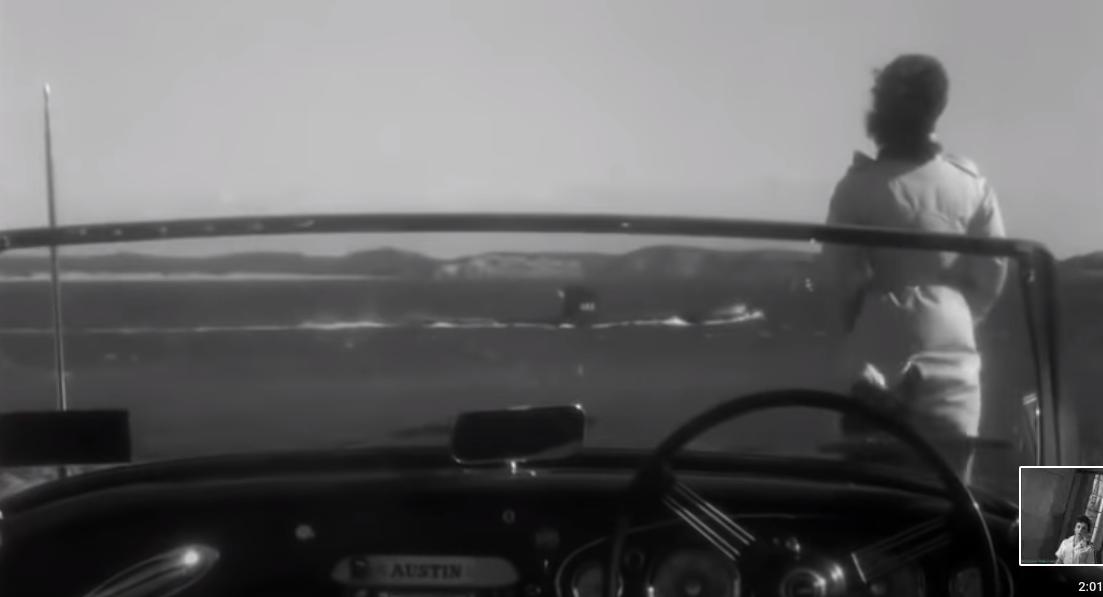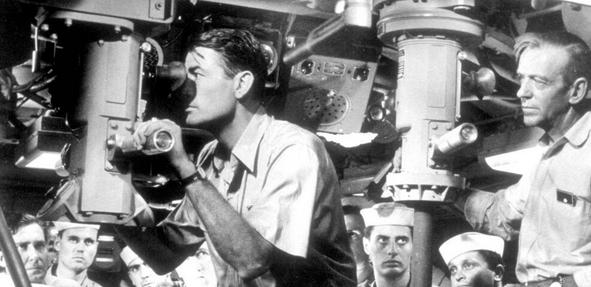
The beautiful Ava Gardner, as Moira Davidson, watches the Sawfish sail off into the sunset, or maybe the sunrise, forever.
She watches because she’s in love with the Captain, Gregory Peck, as Commander Dwight Lionel Towers. Or maybe he’s an Admiral by this point, but the world has passed beyond such distinctions. He’s a man, she’s a woman, and that’s all that is left.
This moment happens on the coast of Australia. This moment happens in the context of a movie called On the Beach, 1959, directed by Stanley Kramer.
They don’t make them like this anymore, and I tell you this cliche’ in a spirit of an ancient self-awareness.
It’s the end of the world as we know it. I feel alright.
It’s worth watching. Some part of me believes it will be worth watching again for a specific reason, that reason being the feeling it imparts to us all the way through. The reminder feeling.
The world as we know it is gone away, or going fast. Whether or not you or I believe that radiation will take it from us, or another Flood, or overheating, or any other catastrophe we make for ourselves … doesn’t matter. Even if all those bullets were to be dodged somehow and the pulse of the species were to beat improbably on, each one of us will still face the fact of mortality as individuals.
It is the seventeenth of October more than sixty years after the film was made. It is still here for us and we are still here for it. But that will not always be true. Exactly how many more October seventeenths do we have, you and I? Answers will vary, because some of us are young and healthy and others old or sick, and anyway the bombs or the sun may level all that. There’s no way to know.
It doesn’t matter whether I’m right or you are, or Jimmy Dore or Marjorie Taylor-Greene or Tulsi Gabbard. The movie suggests that it doesn’t quite matter whether we’re with someone to love, or on our own to face the night. That the only thing that might matter is doing the work, of moviemaking, or preaching, of driving a fast car or a slow hauling pickup or a submarine, and doing it with grace. It can be enough or more than enough to just discover what our work even is.
I have that much though I have little else. I speak to you now from my own job-free place of work, from my heart, trying to tease out from the fragments and the mess each tiny fleck of gold that might not even be there. It doesn’t make me better. It doesn’t even make me good. It’s a matter of each moment, and of each developing skill. That’s what it means to be a belletrist. That’s what it means to be alive.
Flecks of gold. This is the only performance by Fred Astaire that’s ever mattered to me in any meaningful way.
His character takes his destiny into his own capable hands at the end. There’s nothing moral or immoral or sentimental or noble about it.
If for no other reason than bearing witness to that, I recommend that you set aside two hours of your life sometime and see for yourself.
